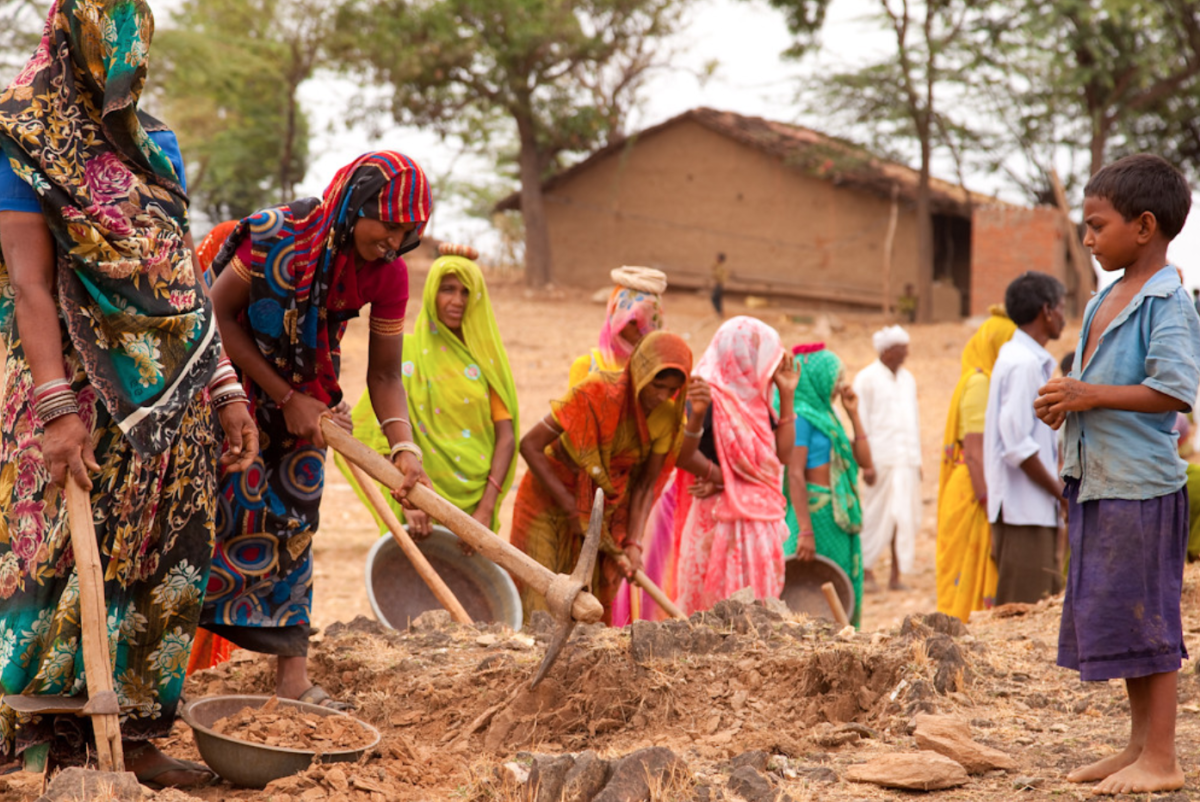Improving the delivery of social protection wages across multiple Indian states

Work in progress at NREGA site (Credit: UN Women/Gaganjit Singh)
An app that improves how quickly wages are delivered to poor households was extended to Bihar based on promising evidence from Madhya Pradesh, Jharkhand, and close collaborations with state government officials.
India’s federal workfare program (MGNREGA) is one of the largest social protection programs in the world — more than fifty million rural households depend on MGNREGA wages. Yet the delivery of wages into workers’ bank accounts have frequently been delayed beyond the legally mandated fifteen days, which can be dire for these households. Both the press and government in India recognize the severity of this problem.
With funding from the Economic Development and Institutions (EDI) program, managed in part by CEGA, researchers Eric Dodge (ID Insight), Charity Troyer Moore (Yale), Yusuf Neggers (Michigan), and Rohini Pande (Yale) evaluate an app named Paydash, designed to improve the flow of information and accountability for bureaucrats responsible for processing payments. Specifically, the app allows bureaucrats to see the status of pending payments, identify responsible officers, and more immediately address issues via WhatsApp and phone calls. The project is implemented by Inclusion Economics at Yale University in collaboration with Inclusion Economics India Centre.
The researchers randomize access to the app across different levels of the administrative hierarchy to test whether wage payments are expedited when bureaucrats have better information about the status of the delay.
The randomized evaluation showed that introducing the PayDash app reduced the time required to process wage payments for workers by 11% (or approximately 2 days) in high-delay areas. In addition, in this context, transferring an officer is a relatively blunt strategy to reward performance, and PayDash significantly reduced the rates at which subordinate officers are transferred to better locations.
Given these promising impacts, the team has already expanded their app to an additional state, Bihar, at the request of senior officials in the Bihar Rural Development Department. This expansion to Bihar occurred after senior administrators in the central Ministry of Rural Development invited the research team to share insights about the tool in a meeting with state officials. Since the work began, the researchers have interacted on a regular basis with several senior officials in the Bihar Rural Development Department.
The team has already directly interacted with over 1,000 policy officials at the district and lower block levels in Bihar to train them on how to interpret and use the tool to help them reduce MGNREGA payment delays. The team remains in talks with other officials and is well positioned to expand their app to new states in India, demonstrating the potential to help decrease wage delays for millions of other impoverished workers.

